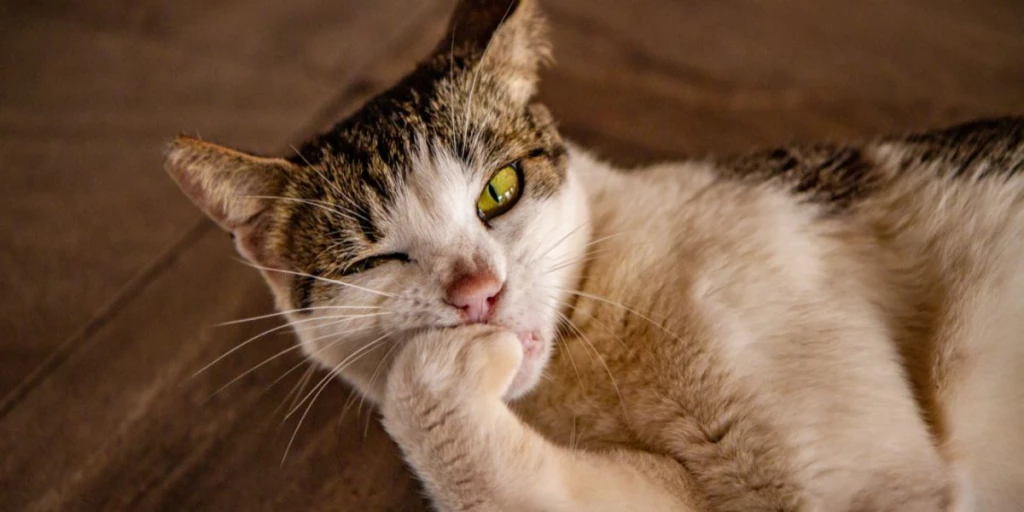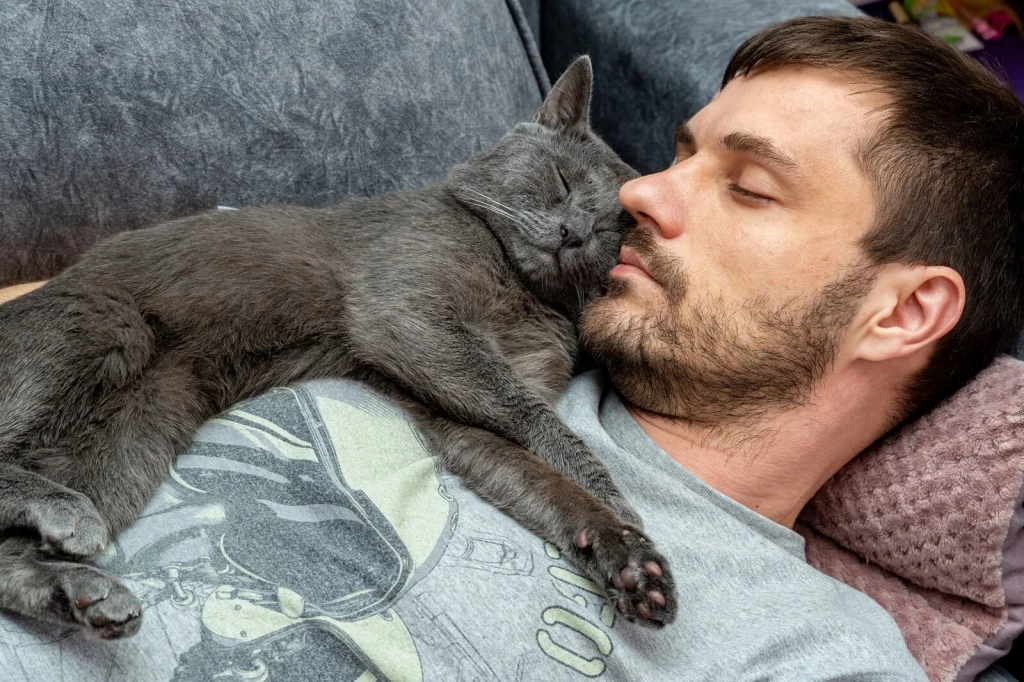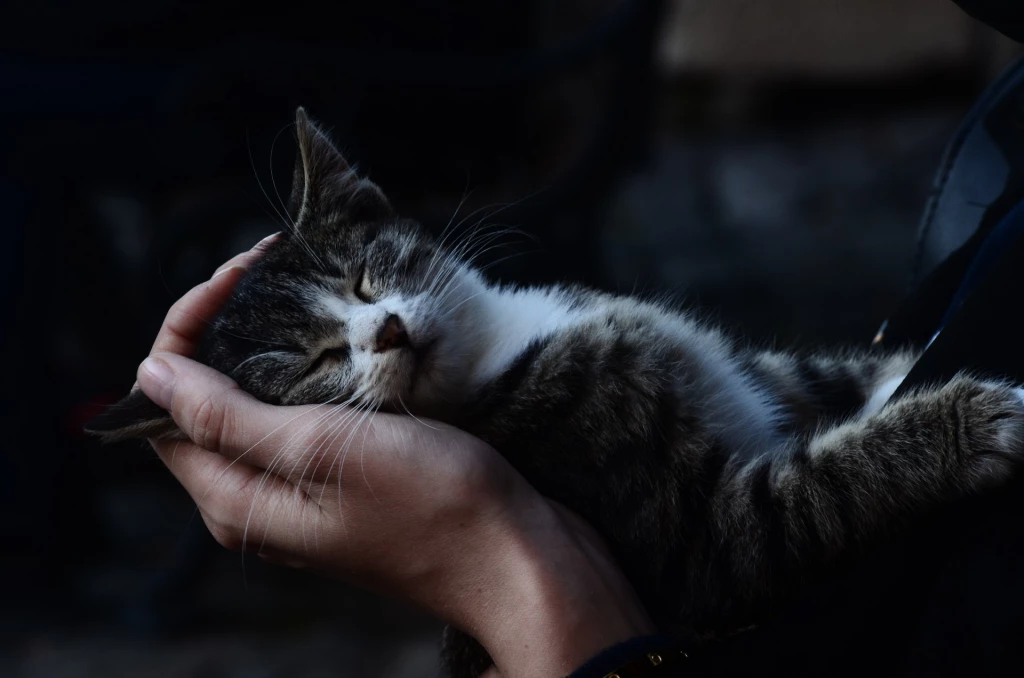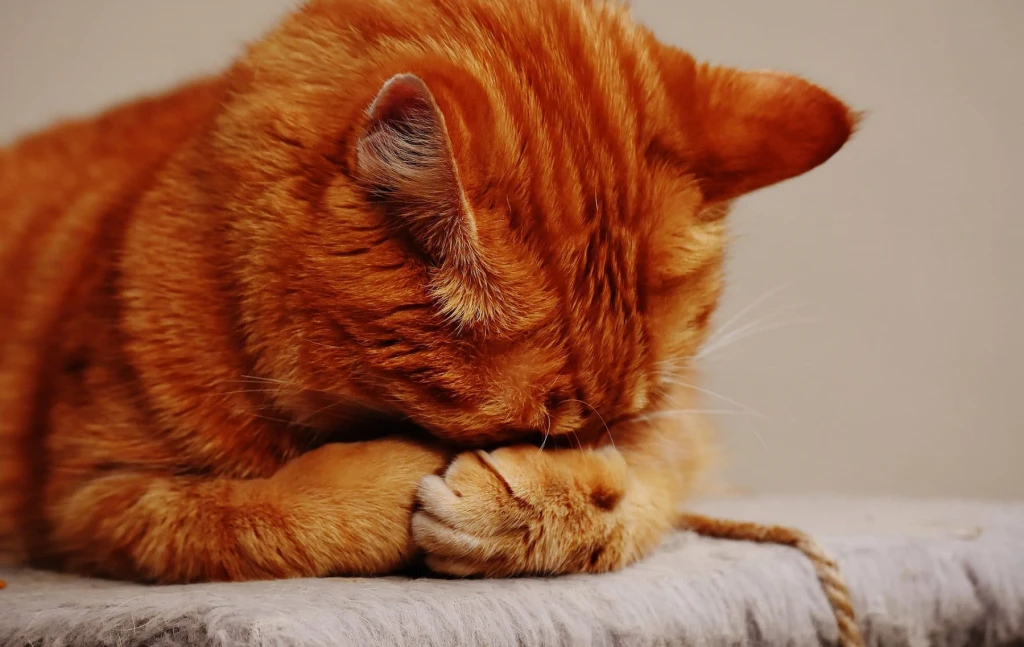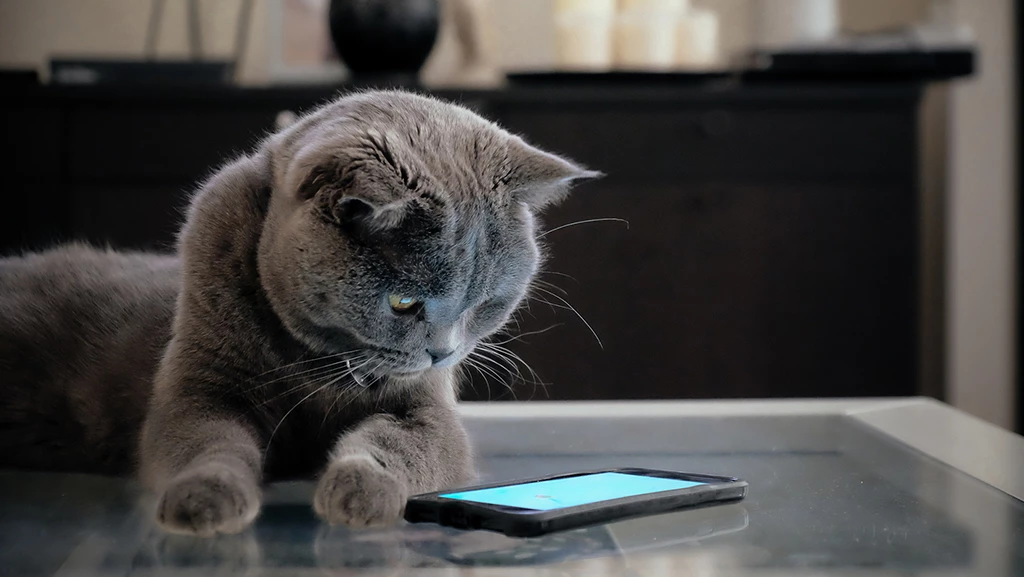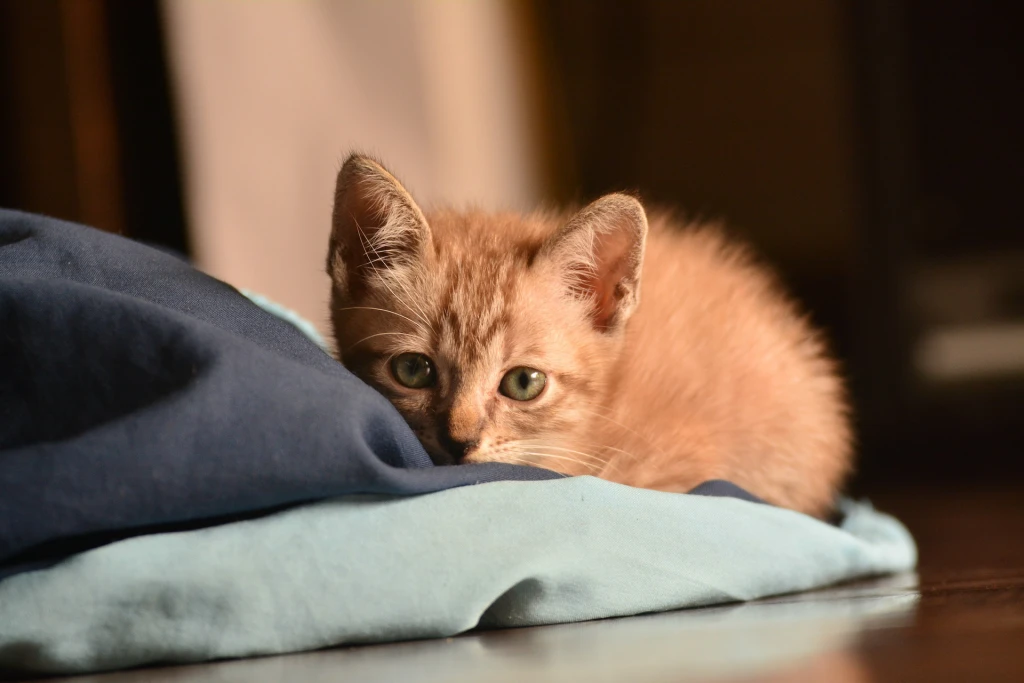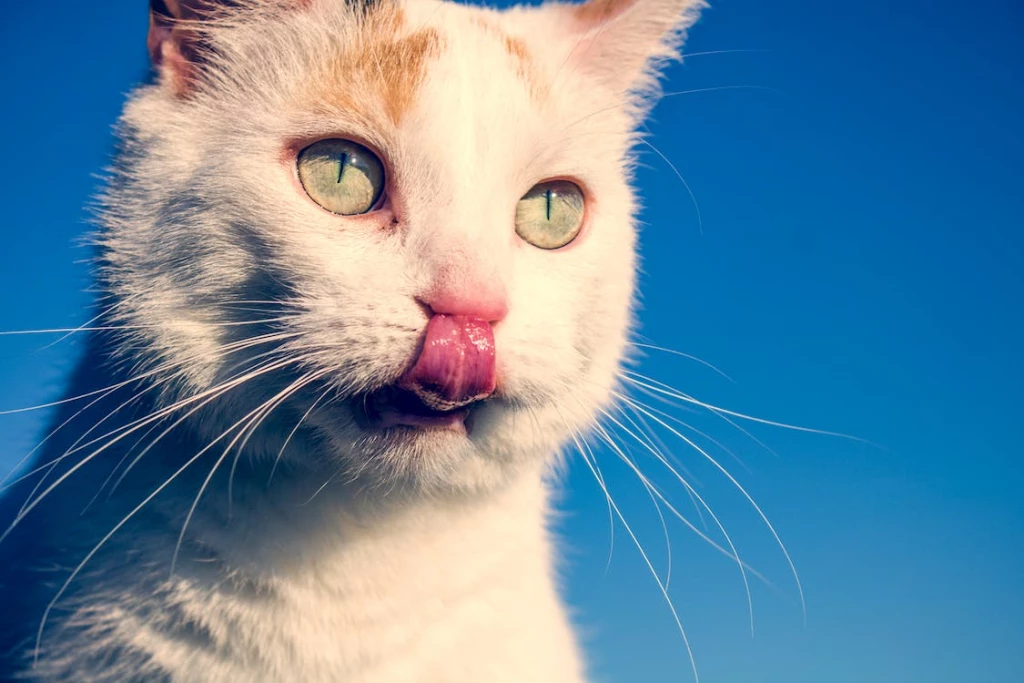Have you ever wondered why your cat bites its nails? If you have, you are not alone. Many cat owners have noticed this behavior in their feline friends and have asked themselves the same question. Is it normal? Is it healthy? Is it a sign of a problem?
In this blog post, we will answer these questions and more. We will explain why cats bite their nails and what it means for their health and well-being. We will also explore the difference between normal and abnormal nail biting in cats and how to tell them apart. We will also discuss some of the possible causes of abnormal nail biting in cats and how they can be diagnosed and treated. Finally, we will offer some practical solutions and prevention tips for cat owners who want to help their cats stop biting their nails excessively.
By the end of this blog post, you will have a better understanding of why cats bite their nails and what you can do to help your cat have healthy and happy nails. So, let's get started!
Normal vs. Abnormal Nail Biting
If you have ever watched your cat groom itself, you may have noticed that it sometimes bites or chews on its nails. This is a normal part of feline hygiene and maintenance, and it does not mean that your cat has a problem. However, not all nail biting behaviors are normal or healthy. Some cats may bite their nails excessively or obsessively, causing harm to themselves or indicating an underlying issue. How can you tell the difference between normal and abnormal nail biting in cats?
Normal nail biting is usually occasional and brief. It occurs when your cat needs to clean its paws or remove the outer layer of its nails. Cats have retractable claws that consist of several layers of keratin, a protein that forms the nails and hair. As the outer layer wears off, it exposes a new and sharper layer underneath. Your cat may bite off the loose or frayed parts of its nails to keep them in good shape. Your cat may also bite its nails or paw pads to get rid of any dirt, litter, or other debris that may have accumulated in the area.
Abnormal nail biting is usually frequent and prolonged. It occurs when your cat has a medical or behavioral problem that causes it to chew on its nails compulsively or excessively. This can result in damage to the nails or skin, such as bleeding, infection, inflammation, or pain. Your cat may also show signs of distress or discomfort, such as licking, scratching, shaking, or limping. Abnormal nail biting can be caused by various factors, such as infections, allergies, injuries, stress, anxiety, boredom, or frustration.
If you notice that your cat is biting its nails more than usual or causing harm to itself, you should consult your vet as soon as possible. Your vet can examine your cat and determine the cause and severity of the nail biting behavior. Your vet can also prescribe the appropriate treatment and prevention measures to help your cat stop biting its nails abnormally and restore its health and well-being.
Causes Of Abnormal Nail Biting
As we have seen, some nail biting is normal and natural for cats. However, when it becomes excessive or obsessive, it may indicate that something is wrong with your cat. Abnormal nail biting can be caused by various factors that affect your cat's physical or mental health. In this section, we will explore some of the most common causes of abnormal nail biting in cats and how they can be diagnosed and treated.
Medical Conditions: Some cats may bite their nails excessively because they have a medical condition that causes pain, itching, or inflammation in their paws or nails. These conditions may include:
- Infections: such as ringworm, yeast, or bacteria that can affect the skin, fur, or nails of your cat. These infections can cause redness, swelling, and irritation in the affected area and make your cat chew on its nails to relieve the discomfort.
- Allergies: such as food, environmental, or flea allergies that can trigger an immune response in your cat. These allergies can cause itching, scratching, and inflammation in various parts of your cat's body, including the paws and nails.
- Injuries: such as cuts, sprains, fractures, or broken nails that can occur due to accidents, fights, or over-grooming. These injuries can cause pain and discomfort in your cat's paws and make it bite its nails to try to alleviate the problem.
- Autoimmune Diseases: such as pemphigus that can affect the skin and nail beds of your cat. These diseases can cause blisters, ulcers, and crusts on your cat's skin and nails and make it chew on its nails to cope with the pain and inflammation.
- Parasites: such as mites or fleas that can infest your cat's skin, fur, or nails. These parasites can cause itching, biting, and irritation in your cat's paws and make it bite its nails to get rid of them.
If you suspect that your cat has a medical condition that causes abnormal nail biting, you should take it to the vet as soon as possible. Your vet can examine your cat and perform tests to diagnose the condition and prescribe the appropriate treatment. Depending on the condition, your vet may recommend medication, topical creams, supplements, or surgery to help your cat heal and stop biting its nails.
Behavioral Issues: Some cats may bite their nails excessively because they have a behavioral issue that causes emotional distress or coping mechanisms. These issues may include:
- Anxiety: such as separation anxiety, noise phobia, or generalized anxiety disorder that can affect your cat's mood and behavior. These anxiety disorders can make your cat feel nervous, fearful, or insecure and make it bite its nails as a way to calm itself down or self-soothe.
- Boredom: such as lack of stimulation, enrichment, or interaction that can affect your cat's mental well-being. These boredom factors can make your cat feel restless, frustrated, or unhappy and make it bite its nails as a way to entertain itself or release energy.
- Frustration: such as lack of control, choice, or resources that can affect your cat's satisfaction and happiness. These frustration factors can make your cat feel stressed, angry, or resentful and make it bite its nails as a way to vent its emotions or assert its dominance.
- Stress: such as changes in routine, environment, or social group that can affect your cat's stability and comfort . These stress factors can make your cat feel anxious, confused, or threatened and make it bite its nails as a way to cope with the situation or adapt to the new circumstances.
If you suspect that your cat has a behavioral issue that causes abnormal nail biting, you should try to identify and eliminate the source of the issue. You should also provide your cat with a safe and comfortable environment where it can relax and feel secure. You should also provide your cat with enough stimulation, enrichment, and interaction to keep it mentally and physically healthy.
Environmental Factors: Some cats may bite their nails excessively because they are affected by environmental factors that cause discomfort or insecurity. These factors may include:
- Lack of scratching posts: If your cat does not have enough opportunities to scratch and file its nails naturally on appropriate surfaces such as scratching posts or mats, it may resort to biting its nails more aggressively to keep them in good shape. Scratching also helps your cat reduce stress and mark its territory, so lack of scratching posts can affect your cat's emotional well-being as well.
- Inappropriate litter material: If your cat does not like the texture, smell, or quality of the litter material in its litter box, it may avoid using it or feel uncomfortable when doing so. This can lead to dirt, litter, or other debris getting stuck in your cat's paws or nails and causing irritation or infection. Your cat may bite its nails to try to remove the unwanted substances from its paws.
- Changes in routine or surroundings: If your cat experiences sudden or frequent changes in its daily routine or living environment, such as moving to a new house, getting a new pet, or having a new baby, it may feel stressed or insecure. This can trigger anxiety or coping behaviors in your cat, such as biting its nails to calm itself down or adapt to the new situation.
If you suspect that your cat is affected by environmental factors that cause abnormal nail biting, you should try to provide your cat with a comfortable and consistent environment where it can feel safe and relaxed. You should also provide your cat with enough scratching posts of different types and materials to allow it to scratch and file its nails naturally and reduce stress. You should also choose a litter material that suits your cat's preferences and keep the litter box clean and accessible. You should also minimize any changes in your cat's routine or surroundings and introduce any new elements gradually and positively.
Solutions And Prevention
If your cat is biting its nails abnormally, you may be wondering what you can do to help your cat stop this behavior and prevent it from happening again. Depending on the cause of the nail biting, there are different solutions and prevention tips that you can follow to improve your cat's health and well-being. Here are some of them:
- Consult a vet: The first and most important step is to take your cat to the vet as soon as you notice any signs of abnormal nail biting. Your vet can examine your cat and diagnose the cause of the nail biting, whether it is a medical or a behavioral issue. Your vet can also prescribe the appropriate treatment and prevention measures for your cat, such as medication, topical creams, supplements, or surgery. You should follow your vet's instructions carefully and monitor your cat's progress and recovery.
- Provide scratching posts: One of the best ways to prevent abnormal nail biting in cats is to provide them with enough opportunities to scratch and file their nails naturally on appropriate surfaces such as scratching posts or mats. Scratching also helps your cat reduce stress and mark its territory, so it is beneficial for your cat's emotional well-being as well. You should provide your cat with at least two or three different types of scratching posts of different materials, shapes, and orientations to keep your cat interested and satisfied. You should also place the scratching posts in strategic locations where your cat likes to scratch or where you want to redirect its scratching behavior.
- Trim the nails regularly: Another way to prevent abnormal nail biting in cats is to trim their nails regularly to prevent overgrowth or breakage that may cause irritation or injury. You should trim your cat's nails every two to four weeks using a pair of sharp nail clippers designed for cats. You should only cut the tip of the nail, avoiding the pink part called the quick, which contains blood vessels and nerves. If you cut the quick by accident, it may cause bleeding and pain for your cat. You should dip the claw into flour or cornstarch to stop the bleeding and watch your cat closely until it stops. If you are not confident or experienced in trimming your cat's nails, you can ask your vet or a professional groomer to do it for you.
- Address behavioral issues: If your cat is biting its nails excessively because of a behavioral issue such as anxiety, boredom, frustration, or stress, you should try to identify and eliminate the source of the issue. You should also provide your cat with a safe and comfortable environment where it can relax and feel secure. You should also provide your cat with enough stimulation, enrichment, and interaction to keep it mentally and physically healthy. Some ways to do this are:
- Provide toys: such as balls, mice, feathers, or puzzles that can keep your cat entertained and engaged. You can also rotate the toys every few days to prevent boredom.
- Play with your cat: such as using a laser pointer, a wand toy, or a string that can stimulate your cat's hunting instincts and provide exercise. You should play with your cat for at least 15 minutes twice a day.
- Give treats: such as catnip, dental chews, or freeze-dried meat that can reward your cat for good behavior and provide oral health benefits.
- Use supplements: such as calming collars, sprays, or diffusers that contain pheromones or natural ingredients that can help reduce anxiety and stress in cats.
- Seek behavioral therapy: such as consulting a certified animal behaviorist or a veterinarian who specializes in behavior medicine who can help you understand and modify your cat's behavior using positive reinforcement techniques.
- Monitor the nail biting: The last step is to monitor your cat's nail biting behavior and observe any changes in frequency, intensity, or duration. You should also check your cat's paws and nails regularly for any signs of damage or infection. If you notice any worsening of the nail biting behavior or any new symptoms in your cat, you should contact your vet immediately for advice and treatment.
Conclusion
We hope you enjoyed this blog post and learned something new about why cats bite their nails. As we have seen, nail biting is a normal part of feline grooming and maintenance, but it can also indicate a medical or behavioral issue if it becomes excessive or obsessive. Therefore, it is important to monitor your cat's nail biting behavior and consult your vet if you notice any signs of abnormality.
To help your cat stop biting its nails abnormally, you should follow these steps:
- Consult a vet to diagnose and treat any underlying medical issues that may be causing the nail biting
- Provide scratching posts to allow your cat to sharpen and file its nails naturally and reduce stress
- Trim the nails regularly to prevent overgrowth or breakage that may cause irritation or injury
- Address behavioral issues to identify and eliminate any sources of anxiety, boredom, frustration, or stress that may be triggering the nail biting
- Monitor the nail biting to observe any changes in frequency, intensity, or duration and seek professional help if needed
By following these steps, you can help your cat have healthy and happy nails and improve its overall health and well-being.
